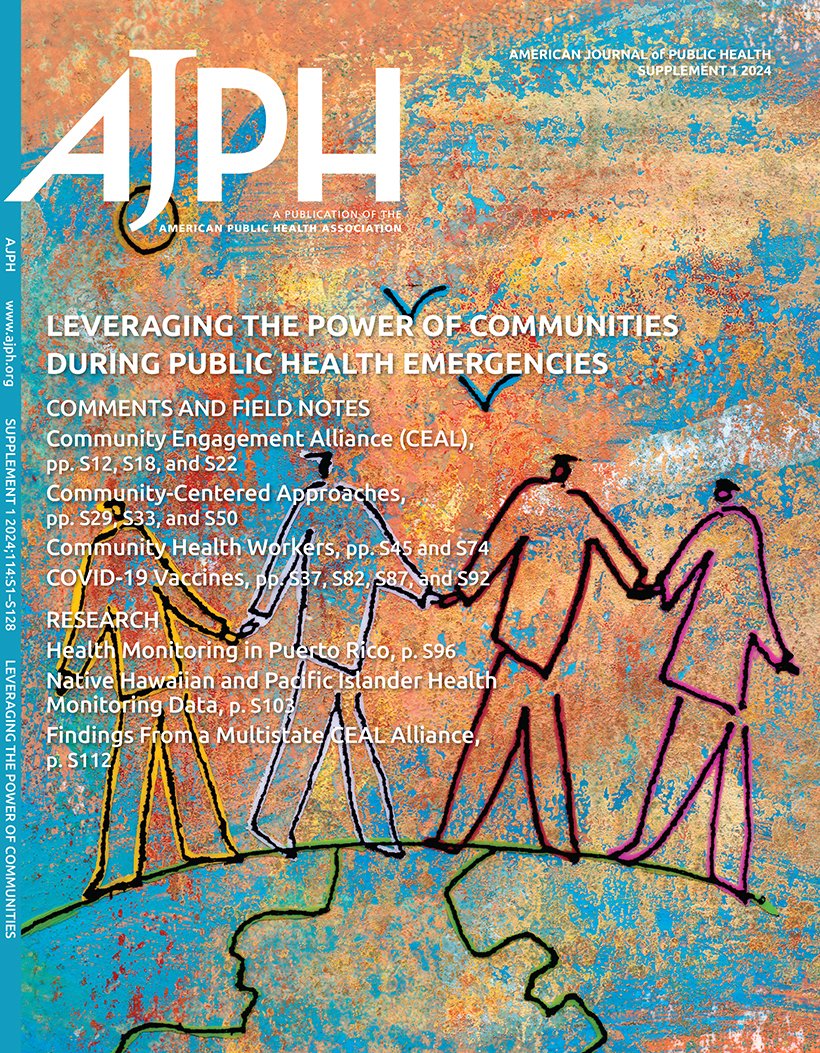Evaluating Algorithmic Approaches to Uncover Racial, Ethnic, and Gender Disparities in Scientific Authorship.
IF 9.6
1区 医学
Q1 PUBLIC, ENVIRONMENTAL & OCCUPATIONAL HEALTH
引用次数: 0
Abstract
To explore the capabilities of race/ethnicity and gender prediction algorithms in uncovering patterns of authorship distribution in scientific paper submissions to a major peer-reviewed scientific journal (AJPH), we analyzed 17 667 manuscript submissions from the United States between 2013 and 2022. We used machine-learning algorithms to predict corresponding authors' race/ethnicity (Asian, Black, Hispanic, White) and gender categories based on name-derived probabilities to compare the predictive performance of these algorithms and their impact on disparity analysis. Predicted White authors dominated submissions and had the highest acceptance rates (21.1%), while predicted Asian authors faced the lowest (14.9%). Predicted women, despite being the majority, had lower acceptance rates (17.9%) than men (20.5%), a trend consistent across most racial/ethnic groups. Different algorithms revealed similar disparities but were limited by biases and inaccuracies in predicting race and ethnicity. Manuscript acceptance rates revealed disparities by race/ethnicity and gender; predicted White and male authors had the highest rates. While machine-learning algorithms can identify such patterns, their limitations necessitate combining them with self-identified demographic data for greater accuracy. (Am J Public Health. Published online ahead of print May 8, 2025:e1-e8. https://doi.org/10.2105/AJPH.2025.308017).评估算法方法以揭示科学作者中的种族、民族和性别差异。
为了探索种族/民族和性别预测算法在揭示向主要同行评议科学期刊(AJPH)提交的科学论文作者分布模式方面的能力,我们分析了2013年至2022年间来自美国的17667份手稿。我们使用机器学习算法根据姓名衍生概率预测相应作者的种族/民族(亚洲人、黑人、西班牙裔、白人)和性别类别,以比较这些算法的预测性能及其对差异分析的影响。预计白人作者在投稿中占主导地位,接受率最高(21.1%),而预计亚洲作者的接受率最低(14.9%)。尽管预测中的女性占多数,但录取率(17.9%)低于男性(20.5%),这一趋势在大多数种族/族裔群体中都是一致的。不同的算法显示出类似的差异,但在预测种族和民族方面受到偏见和不准确性的限制。手稿接受率显示了种族/民族和性别之间的差异;白人和男性作者的自杀率最高。虽然机器学习算法可以识别这种模式,但它们的局限性需要将它们与自我识别的人口统计数据结合起来,以获得更高的准确性。公共卫生。2025年5月8日提前在线发布:e1-e8。https://doi.org/10.2105/AJPH.2025.308017)。
本文章由计算机程序翻译,如有差异,请以英文原文为准。
求助全文
约1分钟内获得全文
求助全文
来源期刊

American journal of public health
医学-公共卫生、环境卫生与职业卫生
CiteScore
9.50
自引率
3.90%
发文量
1109
审稿时长
2-4 weeks
期刊介绍:
The American Journal of Public Health (AJPH) is dedicated to publishing original work in research, research methods, and program evaluation within the field of public health. The journal's mission is to advance public health research, policy, practice, and education.
 求助内容:
求助内容: 应助结果提醒方式:
应助结果提醒方式:


